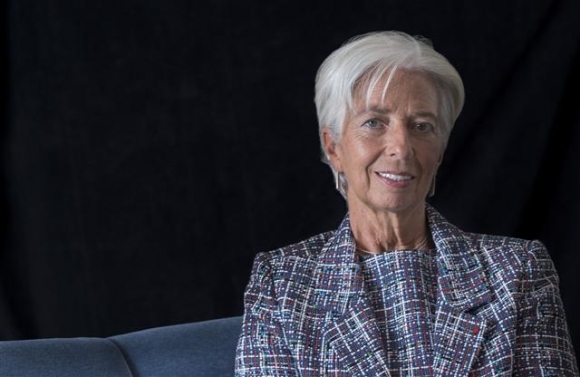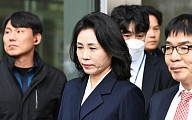크리스틴 라가르드 국제통화기금(IMF) 총재

역사적으로 한국은 신라시대 선덕여왕부터 조선의 여성 기업인 김만덕, 유관순까지 영향력 있는 여성들의 산실이었습니다. 오늘날에는 음악가, 피겨스케이팅 선수, 미국 LPGA투어 ‘올해의 선수상’을 받은 박성현 같은 골프 선수에 이르기까지 한국 여성들이 전 세계무대에서 빛을 발하고 있습니다.
그러나 경제 분야에서만큼은 그렇지 않습니다. 경제협력개발기구(OECD) 국가 중 한국 여성의 경제 활동 참가율이 가장 낮다는 점이 이를 뒷받침합니다.
여성의 경제 활동 참여를 늘리는 것은 도덕적으로 올바른 선택인 동시에 거시경제적으로도 옳은 선택입니다. 국제통화기금(IMF)을 비롯한 여러 연구에 따르면 여성의 경제 활동 참여를 확대하는 것이 경제 성장을 촉진합니다. 또한 경제의 다변화를 가능케 하고, 소득 불평등을 줄이며 인구 감소를 완화합니다.
이는 한국과 밀접한 관련이 있습니다. 지난 5년간 한국의 경제 활동 가능 인구는 매년 20만 명씩 증가했는데 이는 연평균 0.7%포인트씩 늘어난 규모입니다. 반면 향후 5년간 한국의 경제 활동 가능 인구는 해마다 10만 명씩 줄어들어 0.2%포인트씩 줄어들 것으로 전망됩니다.
더 많은 여성이 경제 활동에 참여할 수 있도록 함으로써 경제 활동 인구 감소에 따른 악영향을 획기적으로 완화할 수 있습니다. 다른 나라의 사례에서 볼 수 있듯이 여성의 경제 활동 참여와 출산율을 높이려면 국가 정책이 뒷받침돼야 합니다.
다행인 것은 한국이 이 부문에 대해서 진전을 보이고 있다는 점입니다. 육아 휴직 제도가 확대되고, 보육을 위한 투자도 늘어나고 있습니다. 출산 휴직 후 여성들이 직장에 복귀하는 것을 지원하고, 가정 진화적인 사내 분위기를 만드는 조치들이 속속 진행되고 있습니다.
문재인 대통령은 ‘여성 장관 30%’ 공약을 지켰습니다. 한국 정부는 구직 여성을 위해 175개의 고용센터를 지을 예정이며 자녀를 둔 여성이 근로시간을 단축할 수 있도록 하는 추가 조치를 계획하고 있습니다.
하지만 더 큰 노력이 필요하며 이는 큰 보상으로 돌아올 것입니다. IMF는 연구 결과, 한국이 보육 혜택을 늘리고 아르바이트 일자리에도 세제 혜택을 주는 등의 노력을 기울인다면 여성의 경제 활동 참여율이 중기적으로 8%포인트 늘어날 수 있다고 추산했습니다.
기업들도 주어진 역할을 충실히 이행해야 합니다. 예컨대 남성의 육아휴직 사용 비율은 최근에서야 간신히 5%를 넘겼습니다. 많은 남성이 육아휴직 사용 시 직장에서 미움을 받을까 두려워 제대로 육아휴직을 쓰지 않습니다. 기업 문화도 남성의 육아휴직에 적응해야 합니다. 기업 문화는 또 고위직에 여성 비율을 높이는 등 여성을 위한 방향으로 변화해야 합니다. 현재 한국 기업의 고위직 중 여성 비율은 2%에 불과합니다.
기업의 고위직에 여성 비율을 늘리는 것은 비즈니스에 유리합니다. IMF가 유럽 34개국의 기업 200만 개를 대상으로 조사한 바에 따르면 기업이 이사회에 1명 이상의 여성 임원을 추가할 경우 기업의 총자산이익률(ROA)을 8~13베이시스포인트(bp) 높일 수 있습니다.
가족친화적인 기업 문화는 더 많은 여성이 고위직에 진출케 하는 전제 조건입니다. 그 외에도 기업은 여성의 역할을 한정하는 무의식적인 편견 등의 장애물에도 맞서야 합니다. 여성 고용 할당제 같은 정책은 일부 국가에서 잘 안착했습니다. 멘토링 같은 정책도 여성의 경력 개발을 도울 수 있습니다. 여성의 경제 활동 참여가 가져오는 조직적인 장점을 이해한 남성들은 이에 대해 회의적인 직장 동료를 설득할 수 있습니다.
여성의 경제 활동 참여율을 높이는 것이 포괄적인 경제 성장에 중요하다는 점에서 이 문제는 IMF에도 중요합니다. IMF는 성별과 관련한 주요 문제점과 정책을 포함해 성별에 따른 경제에 대해 연구하고 있습니다. IMF는 이집트, 요르단, 니제르에 성(gendero性) 관련 지원 프로그램을 제공하고 있습니다. 또 경제의 건전성 정도와 성 이슈와의 관계를 파악하고자 27개국을 대상으로 연구하고 있습니다.
지난 몇 년간 우리는 한국 정부와 성 문제를 논의했습니다. 우리는 이 문제에 전념할 것입니다. 또 앞으로 IMF는 여성의 경제활동 확대를 주요 경제 문제로 끌어들일 것입니다.
다시 말해 여성의 잠재력 발휘 문제는 전 세계적으로 우선과제이며 한국에서는 특히 중요한 과제입니다. 이제 행동에 나설 때입니다!
다음은 라가르드 IMF 총재의 특별기고 원문입니다.
Boost Korea's Economy by Empowering Women By Christine Lagarde, Managing Director, International Monetary Fund Throughout its history, Korea has been home to influential women-from Queen Seondeok of Silla, to Kim Mandeok, to Yu Kwan-Sun. Today, Korean women shine on the world stage-including musicians, figure-skaters, and golfers like U.S. Women's Open Champion Park Sung-Hyun. Yet Korea's economy tells a different story, with the proportion of women in the workforce-the female labor force participation rate-amongst the lowest in the Organisation for Economic Co-operation and Development (OECD). Empowering women economically is the right moral choice-and also the right macroeconomic choice. Research by the IMF and others shows that increasing women's economic participation boosts growth, diversifies the economy, reduces income inequality, and mitigates demographic change. These factors are relevant in Korea-especially demographics and growth. For the last five years, the working-age population increased by 200,000 every year, boosting growth by 0.7 percentage points. Over the next five years, the workforce will shrink by 100,000 a year, subtracting 0.2 percentage points from growth. Enabling more women to work can dramatically alleviate the adverse effects of demographic change. International experience also shows that high female labor force participation and fertility can go hand-in-hand if aided by supportive policies. The good news is that Korea is making progress. Parental leave provisions and investments in childcare have been expanded. Steps have been taken to help mothers return to work after absences, and to make workplaces more family-friendly. President Moon Jae-in has honored his pledge to fill 30 percent of his Cabinet seats with women. The government is planning additional measures, including making 175 employment centers available to women seeking work, and enabling mothers to work reduced hours for an extended period of time. Still, further efforts are needed-which can pay big dividends. IMF staff studied the potential impact of Korea reforming secondary earner taxation, increasing childcare benefits, and boosting tax incentives for part-time work. They estimated that such reforms could help increase female labor force participation by 8 percentage points over the medium term. Corporations must also do their part. Paternity leave take-up, for instance, only recently exceeded 5 percent. Many fathers do not use it, fearing ramifications at work. Corporate culture must adapt. Corporate culture must also change for the sake of women, including to increase their representation in leadership roles. Currently, women still hold just 2 percent of senior corporate positions. Having more women in senior corporate positions is good for business. An IMF study of 2 million firms in 34 European countries found that adding one more woman onto the corporate board can help increase the return on assets by between 8 and 13 basis points. Family-friendly working practices are pre-requisites for helping more women access senior roles. Beyond that, companies should confront obstacles like "unconscious bias" that perpetuate damaging assumptions around gender roles. Mandated corporate quotas have worked well in some countries as part of wider packages. Mentorship can help women progress in their careers. And men convinced of the wider organizational benefits of female empowerment can persuade skeptical colleagues. Given that empowering women is critical for inclusive economic growth, it is also critical for the IMF. We are conducting research on the economics of gender-including identifying the main obstacles and polices. IMF-supported programs with Egypt, Jordan and Niger include gender-related provisions. As part of our economic health-checks, we have conducted 27 country and regional pilots on gender issues. For several years, we have discussed gender-related matters with the Korean government. We remain committed to this dialogue. Looking ahead, the IMF will continue to bring women's empowerment into the economic mainstream. In sum, unleashing women's potential is a global priority-but it is especially critical in Korea. The time for action is now. |
|---|











![‘2025 수능 수험표’ 들고 어디 갈까?…수험생 할인 총정리 [그래픽 스토리]](https://img.etoday.co.kr/crop/320/200/2102319.jpg)